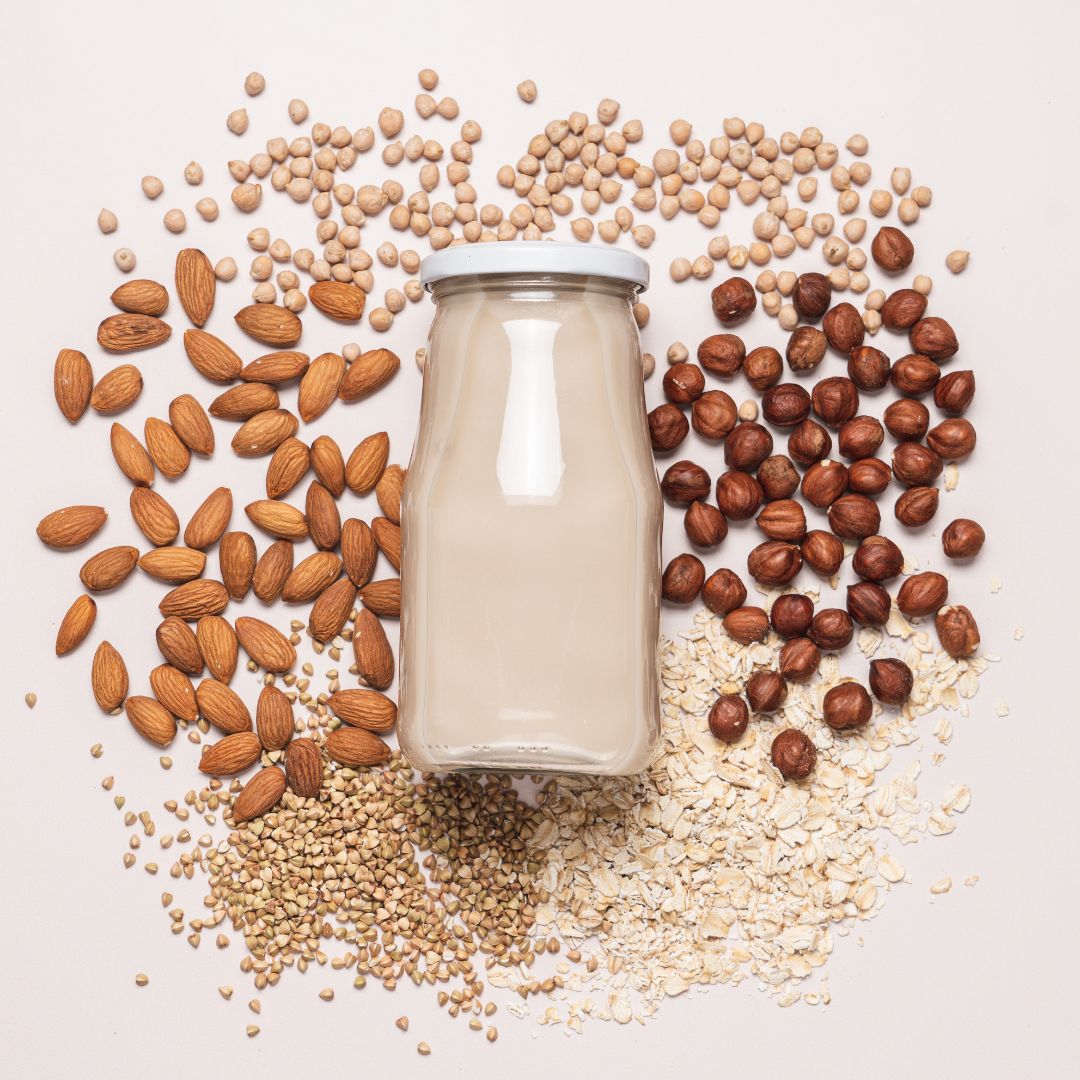In recent years, plant-based milks have gained immense popularity as an alternative to traditional dairy milk. Whether you're lactose intolerant, vegan, or simply looking to reduce your environmental footprint, there's a plant-based milk option to suit your needs. These milks, made from various plant sources, offer a plethora of flavors and nutritional benefits. In this blog, we will explore the nutritional value of some common plant-based milks and help you make informed choices about what's best for your health.
- Almond Milk:
Rich in vitamin E for skin, low-calorie, heart-healthy fats. With calcium, magnesium for bones. Nutritious choice supporting overall well-being.
Nutritional Value (per 1 cup, unsweetened):
- Calories: 13-17
- Protein: 1g
- Fat: 1g
- Carbohydrates: 0-2g
- Calcium: 0 (unfortified)
- Soy Milk:
A protein-packed option with essential vitamins (like B12), minerals (calcium, iron), and heart-healthy omega-3s. A wholesome plant-based alternative.
Nutritional Value (per 1 cup, unsweetened):
- Calories: 80
- Protein: 7g
- Fat: 4g
- Carbohydrates: 4g
- Calcium: 8mg (unfortified)
- Oat Milk:
Rich in fiber, vitamins, and minerals, including B vitamins, calcium, and iron. A nutritious, plant-based option.
Nutritional Value (per 1 cup, unsweetened):
- Calories: 120
- Protein: 3g
- Fat: 5g
- Carbohydrates: 16g
- Calcium: 10mg (unfortified)
- Cashew Milk:
Creamy, nutty, dairy-free. Packed with copper, magnesium, phosphorus, vitamin K, E.
Nutritional Value (per 1 cup, unsweetened):
- Calories: 45
- Protein: 0g
- Fat: 4.5g
- Carbohydrates: 1g
- Calcium: 0 (unfortified)
- Pumpkin Seed Milk:
Pumpkin seed milk offers zinc, magnesium, omega-3s, and protein—a nutrient-rich, plant-based choice.
Nutritional Value (per 1 cup, unsweetened):
- Calories: 45
- Protein: 0g
- Fat: 4.5g
- Carbohydrates: 1g
- Calcium: 0 (unfortified)
- Rice Milk
A protein-packed option with essential vitamins (like B12), minerals (calcium, iron), and heart-healthy omega-3s. A wholesome plant-based alternative.
Nutritional Value (per 1 cup, unsweetened):
- Calories: 70
- Protein: 0g
- Fat: 1g
- Carbohydrates: 15g
- Calcium: 2mg (unfortified)
- Coconut Milk
Coconut milk is creamy and flavorful, making it a popular choice for culinary uses and in various recipes. Creamy and tropical, rich in healthy fats, iron, and magnesium. The beverage version is typically lower in calories and fat.
Nutritional Value (per 1 cup, unsweetened):
- Calories: 45
- Protein: 0g
- Fat: 4.5g
- Carbohydrates: 1g
- Calcium: 4mg (unfortified)
Plant-based milks offer a diverse array of choices to suit various tastes and dietary needs. Understanding their nutritional value, including unfortified calcium content, is essential when incorporating them into your diet. Whether you prefer low-calorie almond milk, protein-rich soy milk, creamy oat milk, cashew milk, or pumpkin seed milk, these plant-based alternatives can enhance your diet while aligning with your dietary preferences and restrictions.
For those who want complete control over the ingredients in their plant milk, creating it fresh at home is the ideal approach. With Milky Plant, you can effortlessly craft any plant-based milk you love with a simple press of a button. It's a convenient and delicious option available right in your own kitchen, ensuring that your plant-based milk is both healthy and tailored to your tastes.















